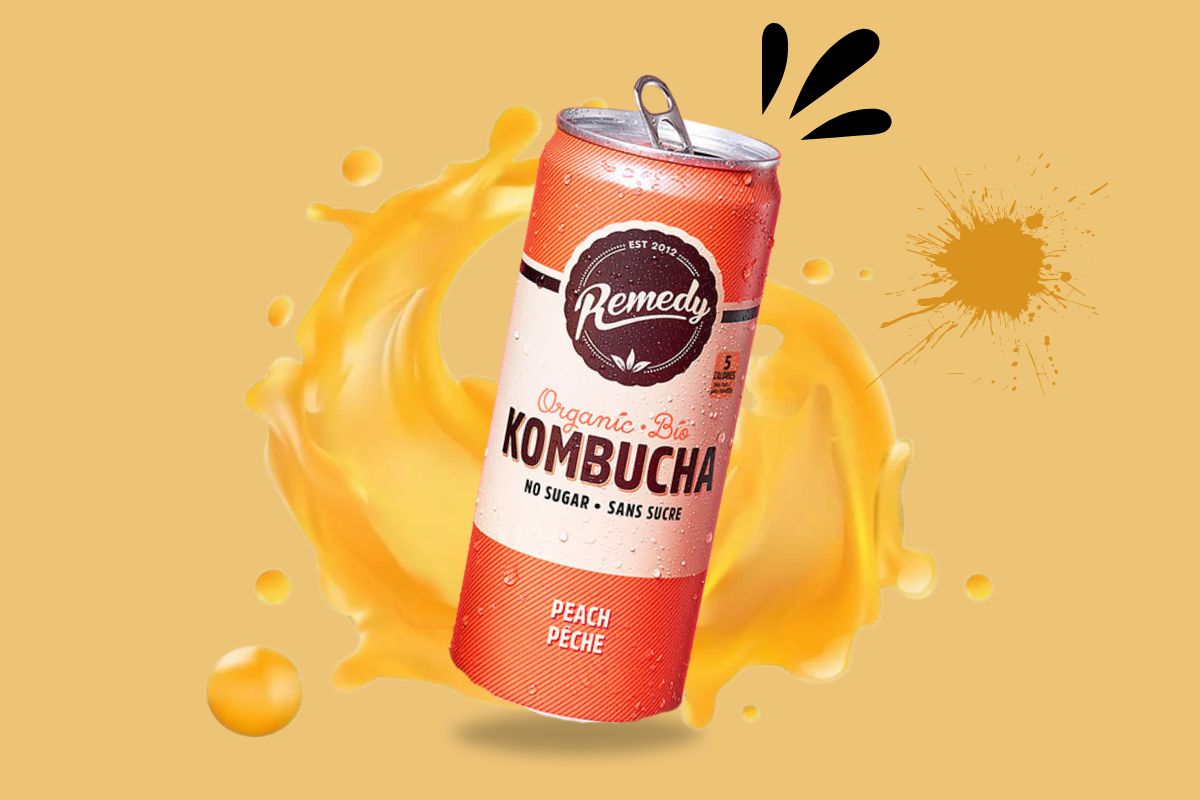For kombucha enthusiasts, the bubbly, probiotic-rich beverage offers a refreshing escape from sugary sodas and a potential gut health boost. But when it comes to timing, the question lingers: what’s the best time to drink kombucha?
The truth is, there’s no one-size-fits-all answer. Like most things in life, the “best” time to drink kombucha depends on your individual needs and preferences. To guide your decision, let’s delve into the science and explore various scenarios:
Understanding Kombucha:
Before delving into the best time to drink kombucha, it’s essential to understand its composition. Kombucha is typically made by fermenting sweetened tea with a symbiotic culture of bacteria and yeast (SCOBY). This fermentation process produces organic acids, probiotics, and a trace amount of alcohol, contributing to its distinct tangy flavor and effervescence.
Morning Kombucha: A Gutsy Start
- Probiotic Powerhouse: Drinking kombucha on an empty stomach allows probiotics to potentially reach your gut faster, maximizing their beneficial effects. This might be ideal for those seeking digestive support or aiming to increase beneficial gut bacteria.
- Energy Without Jitters: Compared to coffee, kombucha offers a gentler energy boost thanks to its low-level caffeine content (usually under 35mg per bottle). However, if highly sensitive, consider afternoon kombucha instead.
- Hydration Hero: Starting your day with kombucha helps kickstart your hydration, especially if you tend to forget water.
Mindful Midday Munch:
- Digestive Duo: Having kombucha alongside or after lunch might aid digestion, particularly with its mild acidity and carbonation. This can be helpful for those prone to bloating or discomfort after meals.
- Appetite Control: Some theories suggest kombucha’s acidity and fiber content could promote satiety, potentially aiding weight management efforts. However, more research is needed.
- Post-Workout Pick-Me-Up: The electrolytes and B vitamins in kombucha (though in small amounts) could contribute to post-workout recovery, replenishing essential nutrients and aiding hydration.
Evening Enjoyment: Weighing the Options
- Relaxation Ritual: The calming act of enjoying a kombucha can be part of a relaxing evening routine. However, some varieties contain small amounts of caffeine, which might disrupt sleep for sensitive individuals. Opt for low-caffeine or decaf options in the evening.
- Sweet Tooth Tamer: A chilled kombucha can be a satisfying alternative to sugary desserts, helping curb cravings while offering a healthier indulgence.
Beyond the Clock: Individual Considerations
- Sensitivity Matters: If you have a sensitive stomach, start with small amounts and consider drinking kombucha with food. Monitor your body’s response and adjust accordingly.
- Sugar content: Be mindful of sugar content, especially in flavored varieties. Choose low-sugar options or limit your overall intake.
- Medication Interactions: Some medications might interact with kombucha, so consult your doctor before incorporating it into your routine.
- Alcohol Content: While commercially available kombucha typically contains less than 0.5% alcohol, homemade varieties might have more. Be mindful of this if avoiding alcohol or adhering to personal restrictions.
- Flavor Frenzy: Ultimately, the best time to drink kombucha is when you enjoy it most! Whether it’s a morning ritual, a midday pick-me-up, or an after-dinner treat, listen to your body and taste buds.
Kombucha Health Benefits
After exploring the best time to drink kombucha, here are some potential health benefits you stand to gain:
- Probiotics: Kombucha is rich in probiotics, which are beneficial bacteria that promote a healthy gut microbiome. A balanced gut microbiome is associated with improved digestion, nutrient absorption, and overall gut health.
- Improved Digestion: Probiotics in kombucha may help alleviate digestive issues and promote a healthy balance of gut bacteria. This could potentially lead to improved digestion and a reduced risk of gastrointestinal problems.
- Nutrient Content: Kombucha contains vitamins, minerals, and antioxidants that are produced during the fermentation process. These include B vitamins, particularly B12, which is not commonly found in plant-based foods and is essential for energy production and nervous system health.
- Detoxification: Some proponents suggest that the organic acids formed during kombucha fermentation, such as gluconic acid and acetic acid, may help support the body’s natural detoxification processes. However, more research is needed to confirm these claims.
- Antioxidant Properties: The tea used to make kombucha contains polyphenols, which have antioxidant properties. Antioxidants help combat oxidative stress and reduce the risk of chronic diseases.
- Immune System Support: A healthy gut microbiome is linked to a robust immune system. By promoting a diverse and balanced gut microbiota, kombucha may indirectly support immune function.
- Joint Health: Some studies suggest that glucosamine, a compound produced during the fermentation process, may contribute to joint health and potentially alleviate arthritis symptoms. However, more research is needed to establish a clear link.
- Protecting against cancer: Some studies have shown that kombucha may help to protect against cancer by killing cancer cells or preventing them from growing. However, more research is needed to confirm these findings.
Final Fizz
While there’s no definitive “best” time to drink kombucha, understanding its properties and your individual needs can help you find the sweet spot. Experiment, listen to your body, and enjoy the bubbly goodness on your terms! Remember, consistency is key, so find a routine that works for you and reap the potential benefits of this fermented delight.
Tags: Healthy LivingKombucha BenefitsProbiotic Drink

